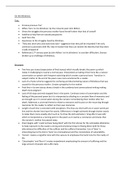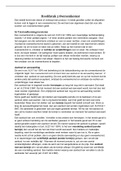Other
Poems of the Decade: On Her Blindness Summary Notes (A*)
- Course
- Institution
This document covers the poem: 'On Her Blindness' from the Poems of the Decade Poetry. I studied this poem for my A Level, Edexcel English Literature Exam as part of the poetry module. By constructing these summarises and notes these provided me with ideas and themes which I could for my essays and...
[Show more]




